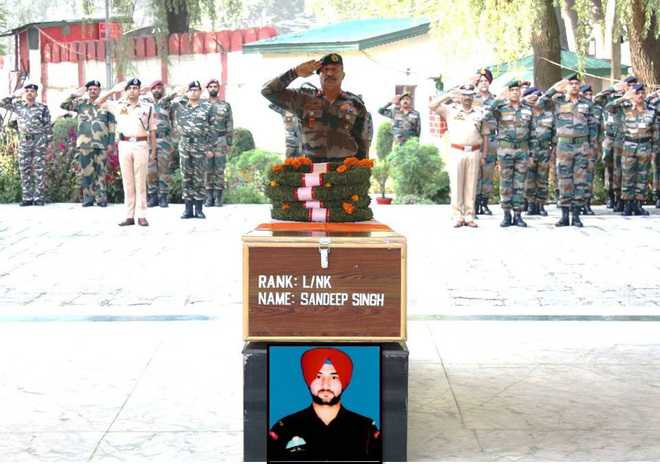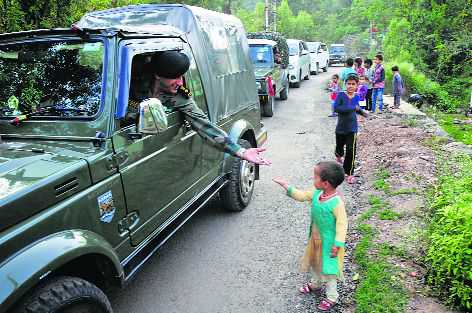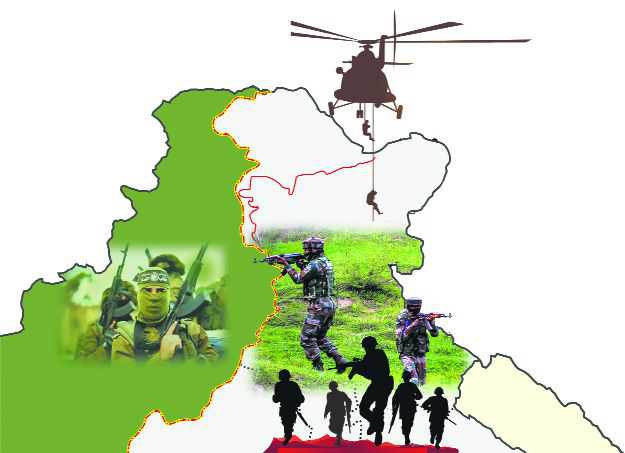
Sadly at a time when the US was eulogising its warrior-statesman Senator John McCain, there was no respect shown towards India’s legendary saint-soldier, LT Gen Hanut Singh, whose premises were sealed in Dehradun
The ‘profession of arms’ bestows a certain nobility, morality and sovereign responsibility that are unmatched in its emotional import to the nation state. The selfless nature of its professional calling often necessitates the combatants to honour their sworn commitments to the Constitution by paying the ‘ultimate price’.
In mature democracies, where the armed forces serve under the civilian authority, their wilful adherence to the highest ethical standards, discipline and steel elevates their popular perception amongst the citizenry. This is especially true in lands of wounded civilisations, bloody history and ongoing combat commitments (like the Armed Forces of the United States or India).
Within the comity of such forces, this culture is sustained by celebrating examples of its heroic past, individual gallantry and the saga of unimpeachable leadership. Beyond the ultimate victory or defeat of battles, it is raw courage and valour of the combatants that are revered for posterity. Hence, a Vietnam is no less sacred as an Iwo Jima, or in the Indian context, a 1962 as a 1971.
Recently, two war heroes from these lands met with starkly contrasting fate. The United States witnessed unprecedented scenes of national mourning, unfiltered grief and the dignity of a spontaneous outpouring, following the death of its Vietnam war hero and Senator, John McCain, whose memory cuts across societal and political divisions in the fractured nation.
The thoroughbred soldier and son of an Admiral, Naval Aviator John McCain was shot down while flying over Hanoi and was a Prisoner of War (PoW) who was tortured in custody for over five years. His physical disabilities, owing to his military services, never diminished the soldier’s instincts as he blazed his way into a political career that was marked by his trademark uprightness, blunt individuality and loyalty to his nation.
In an amazing show of bipartisanship and grace, former Presidents and one-time McCain-rivals, George W Bush (who defeated McCain in Republican primaries) and Barack Obama (who defeated McCain in the Presidential run-off) heaped eulogies on the statesman-warrior and patriot that befitted the soldier to his nation.
His daughter’s loaded ode to the real hero, “We gather here to mourn the passing of American greatness. The real thing, not cheap rhetoric from men who will never come near the sacrifice he gave so willingly, nor the opportunistic appropriation of those who live lives of comfort and privilege while he suffered and served”, or as Barack Obama movingly noted that despite their differences, “we never doubted we were on the same team”.
The America that John McCain had stood up for resolutely and dignifiedly was one where he slammed his own partyman Donald Trump from taking potshots at a fallen soldier, Captain Humayun Khan, about whom McCain said, “memory of his sacrifice will make us a better nation — and he will never be forgotten”.
Soldiers have institutionalised memories and they do not waver from their scriptures or beliefs, the most supreme among them being defending their country above all.
Sadly, around the same time, a reverse narrative was under way in India when the nation forgot its own iconic and almost mythic ‘saint-soldier’, Lt Gen Hanut Singh, as his abode in Dehradun was sealed by an ignorant, apathetic and insensitive municipal corporation.
The legendary Maha Vir Chakra (MVC) awardee, who assumed folklore while in service itself, had passed away in his ashram in Dehradun in 2015. Unsurprisingly, it was in the ‘abode of gods and soldiers’ that this ascetic and spiritually-inclined soldier spent his last years. The veteran community has been aghast and protested to what they saw as an affront to the memory of the man who served the nation and its military, in the finest traditions as a dashing cavalier, feted hero and an unforgettable General.
The legend, who commanded the famous Poona Horse (only regiment to have won two Param Vir Chakras) in the decisive battle of Basantar in 1971, had his regiment acknowledged by none other than the Pakistanis as ‘Fakhr-e-Hind’ (Pride of India) for his battle daredevilry.
Much later, as a senior officer, his imprint and professionalism as a ‘soldier’s-general’, brilliant tactician and the greatest field commander were burnished — something that the equally legendary ‘Thinking General’ K Sundarji acknowledged by entrusting Lt Gen Hanut Singh with the command of 2 Corps. This contributed to mechanised doctrines in the evolution of Armoured Corps and Mechanised Infantry that stand the test of time.
It is said soldiers do not die but only fade away. However, Lt Gen Hanut Singh’s unique character, rectitude and uncompromising probity elevated him within the pantheons of Indian military history.
A fellow clansmen of Lt Gen Hanut Singh from the Marwar region of Rajasthan, Major Shaitan Singh had fought ‘to the end’ in a fierce display of unparalleled courage, leadership and exemplary patriotism in the Battle of Rezang La in 1962.
In a quirk of fate, Major Shaitan Singh (Param Vir Chakra) was from the Kumaon Regiment and goes down in the glorious soldering traditions of Uttarakhand as a proud ‘Kumaoni Officer’. It is this reciprocal dignity, appropriations and soldiering ethos that were invoked by the titular head of the famed Marwar Rathores, Gaj Singh, in his plea to the Chief Minister of Uttarakhand to respect the memory and protect the abode of Lt Gen Hanut Singh in Dehradun.
Chief Minister Harish Rawat would be personally conversant with the sensitivities involved in the matters of military, as like most others in Uttarakhand, he too belongs to a military family.
However, in India, political tides and commercial compulsions often combine to regress the sacrosanct into forgotten commitments. Much has been politically invoked in the name of the ‘Indian soldier’, yet it is these insensitivities that raise questions about the real intent, extent and respect for the uniformed fraternity.
As Abraham Lincoln famously said, “A nation that does not honour its heroes will not long endure”, holds true in all ‘lands of the free’, be it the US or India.
(The writer, a military veteran, is a former Lt Governor of Andaman & Nicobar Islands and Puducherry)










































































